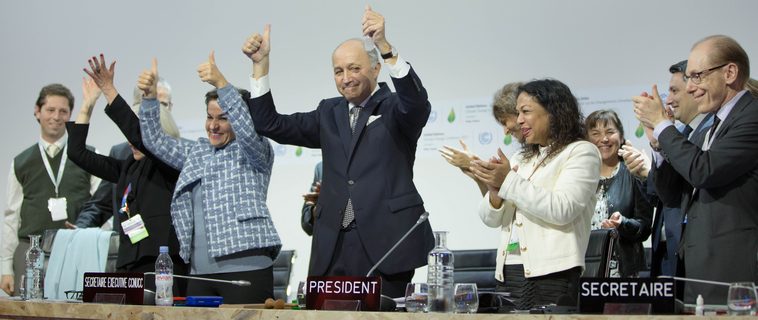The full operationalisation of the “Article 6.4 mechanism”, as established in the Paris Agreement, is key to help countries unlock the goals set out in their climate action plans, said UN Climate Change Executive Secretary, Simon Stiell.

Article 6 of the Paris Agreement provides approaches for countries to voluntarily cooperate in achieving their emission reduction targets and adaptation aims set out in their national climate action plans under the Agreement. One of these approaches is through the Article 6.4 Mechanism, a mechanism to contribute to the mitigation of greenhouse gas emissions and support sustainable development. This mechanism is overseen by the Supervisory Body.
Addressing the Supervisory Body at their meeting in Bonn last week, Stiell stated that the mechanism presents an opportunity for the private sector to invest and participate in the development and dissemination of clean technologies which are critical to achieving carbon neutrality by mid-century.
“Stakeholders and Parties are looking to your work and are expecting to have a robust mechanism operationalised under the UNFCCC process to help reach the goals set in Paris,” he said, adding that “it was critical to set standards that ensure the highest level of environmental integrity, and I would underscore that environmental integrity is essential.”
The Article 6.4 mechanism will enable the trading of emission reduction and removal credits generated through specific activities implemented in host countries, and the participation of countries, companies and individuals. These credits are known as A6.4ERs and represent one tonne of greenhouse gas emissions.
The Supervisory Body held a strategic meeting from March 5 to 6 to discuss the operationalisation of the Article 6.4 mechanism and the delivery of its work. In particular, it looked at issues to support its unique positioning in the carbon markets landscape, with a strong focus on ensuring high environmental integrity standards.
These strategic reflections framed the subsequent discussions held at the fourth meeting of the Article 6.4 Mechanism Supervisory Body, from March 7 to 10. After electing Olga Gassan-Zade (Ukraine) as its Chair and El Hadji Mbaye Diagne (Senegal) as its Vice-Chair, the Supervisory Body advanced work on concrete issues related to the mechanism’s implementation. They stressed the need to prioritize these issues to ensure the timely delivery of a high-quality and agile mechanism that sets new standards and benefits all countries, both in terms of mitigation and adaptation to climate change.
These operational items included kickstarting the development of functional elements such as the activity cycle, project standards, validation and verification standards, as well as the development of a process for the transition of Clean Development Mechanism (CDM) activities to the new mechanism. The Supervisory Body also agreed to build a sustainable development tool taking Parties’ specific circumstances into account, which will be mandatory to assess the co-benefits of the activities put forward under the mechanism.
In addition, a workplan for delivering capacity building to support the transition of activities from the CDM to the Article 6.4 mechanism was adopted.
Finally, in keeping with the Supervisory Body’s wish to work openly and transparently, a call will be launched for a stakeholder consultation to provide guidance on methodological and removals issues.
The Supervisory Body also considered topics of discussions to be proposed at an event at the upcoming Bonn Climate Change Conference in June, with a view to communicating its work and engaging with carbon-market actors.
The fifth meeting of the Supervisory Body will be held in Bonn, Germany, from May 31 to June 3, 2023.
